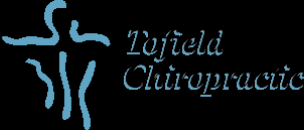Parenting Without Injury: How to Prevent Injuries for New Parents
Originally posted by the Alberta College and Association of Chiropractors
Having a young child is hard. This isn’t exactly breaking news to any parent. Most new parents can foresee the mental exhaustion that comes with the gig; long days, sleepless nights, forever being on your new, tiny boss’ schedule.
What most new parents don’t realize is the physical toll of having a young child.
The constant bending over, lifting and carrying can wreak havoc on your body.
However, there are ways to prevent and treat the pain associated with these new stresses. Here are some tips to protect your body when lifting, carrying or pushing your baby:
Carry your baby correctly
New parents know that everybody has a different opinion when it comes to carrying your baby around. The general consensus among experts is to hold your baby as close to the center of your body as possible. The closer the baby is to your center, the less pressure on your back.
Focus on protecting your spine by resisting the urge to rest your baby on your hip, which can lead to poor spinal alignment, fatigue and eventually leads to hip, back and shoulder pain.
Wear a baby carrier
No, you won’t see models gracing the runaways of Milan with them, but many popular baby carriers have strapping systems meant to evenly distribute weight, which eases the fatigue and repetitive strain felt on your back.
The best way to place your baby in one of these carriers is to place them front facing in. This means the baby’s face is close to your chest with a frog leg position. Placing your baby front facing out, where the baby’s back close to your chest with legs dangling, can be harmful to your baby. Front facing out forces the baby’s spine up against the hard breastbone of the adult who’s holding them. This can affect the development of their spine.
Make sure your front carrier’s straps are tight around your waist and shoulders. Some carriers have a tendency to pull your shoulders forward.
Sit correctly when feeding
For mothers who breastfeed, if you’re sitting to nurse, focus on sitting straight and tall and be sure to bring your baby to your breast. Don’t hunch over to reach your baby, as this can harm your back and neck. Try using a nursing pillow. They can help raise your child to breast level and offer much needed support for you.
Choose your diaper bag wisely
New parents know that as they go, their diaper bag goes. Choosing the right bag is important. The best kinds to consider are the messenger style bags, where a strap goes from your hip to your opposite side shoulder. A messenger-style bag distributes weight more evenly across the body.
Also, if your diaper bag is loaded down with more than 25 pounds of baby gear, you should switch to a backpack style to prevent injury.
If you’ve already purchased a single-shoulder style bag, be sure to switch sides frequently.
How can chiropractic help?
The most common problem area for new parents is the lower back. Babies may look light, but the constant bending over and picking up can cause problems. According to the American Academy of Orthopedic Surgeons, postpartum parents may be lifting their child, who usually weigh between seven and 10 pounds, up to 50 times a day.
Your chiropractor will assess your spine and if they find any misalignments, a simple adjustment will put them back in place. This will ensure your back is ready for the added stress.
For more blogs and information like this, follow us on Twitter or like us on Facebook.


14 comments on “Parenting Without Injury: How to Prevent Injuries for New Parents”